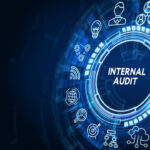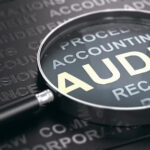Welcome to our comprehensive guide on Assurance and Advisory Services for Expense Auditing. In today’s dynamic business environment, organizations face increasing pressure to maintain transparent financial practices and ensure compliance with regulatory standards. Expense auditing plays a crucial role in identifying inaccuracies, reducing wastage, and improving overall financial efficiency. In this guide, we will delve into the various aspects of assurance and advisory services related to expense auditing.
Table of Contents
1. Introduction to Assurance and Advisory Services
2. Expense Auditing: A Crucial Component of Financial Integrity
3. Role of Assurance Services in Expense Auditing
4. Advisory Services: Guiding Financial Excellence
5. Key Steps in Conducting Effective Expense Audits
6. Technology’s Impact on Assurance and Advisory Practices
7. Challenges and Emerging Trends in Expense Auditing
8. The Future of Assurance and Advisory Services in Expense Auditing
1. Introduction to Assurance and Advisory Services
Assurance and advisory services are essential elements of a well-functioning financial ecosystem. Assurance services involve the evaluation of financial information to provide confidence and reliability to stakeholders. On the other hand, advisory services focus on providing insights, recommendations, and guidance to improve financial processes and decision-making.
2. Expense Auditing: A Crucial Component of Financial Integrity
Expense auditing is the process of scrutinizing an organization’s expenditure records to ensure accuracy, compliance, and proper allocation of funds. In an era of increased scrutiny and accountability, expense auditing is vital for maintaining financial integrity and preventing financial mismanagement.
3. Role of Assurance Services in Expense Auditing
Assurance services contribute to expense auditing by offering an independent and objective evaluation of financial data. Auditors perform thorough examinations of expense records, assessing their accuracy and compliance with regulatory standards. This process instills confidence in stakeholders, assuring them that financial information is reliable and transparent.
4. Advisory Services: Guiding Financial Excellence
Advisory services complement assurance services by offering expert guidance to organizations seeking to optimize their expense management practices. Financial advisors analyze expense data, identify trends, and provide actionable insights to enhance efficiency, reduce costs, and improve financial decision-making.
5. Key Steps in Conducting Effective Expense Audits
Successful expense audits involve several crucial steps:
– Planning : Defining the scope, objectives, and methodology of the audit.
– Data Collection : Gathering relevant expense-related information from various sources.
– Examination : Scrutinizing expense records for accuracy, compliance, and proper documentation.
– Analysis : Identifying patterns, anomalies, and potential areas of improvement.
– Reporting : Summarizing findings and presenting recommendations to stakeholders.
6. Technology’s Impact on Assurance and Advisory Practices
Advancements in technology have revolutionized the landscape of assurance and advisory services. Automated tools, data analytics, and artificial intelligence enable auditors and advisors to process large volumes of data quickly and extract meaningful insights. This technology-driven approach enhances the accuracy and efficiency of expense auditing.
7. Challenges and Emerging Trends in Expense Auditing
Expense auditing faces challenges such as ever-changing regulatory frameworks, data security concerns, and the complexity of modern financial transactions. However, emerging trends like blockchain-based expense tracking and predictive analytics are poised to address these challenges and reshape the future of expense auditing.
8. The Future of Assurance and Advisory Services in Expense Auditing
The future of assurance and advisory services in expense auditing looks promising. Increasing integration of AI and machine learning will lead to more accurate risk assessment and fraud detection. Additionally, the role of advisors will evolve into strategic partnerships, providing continuous financial insights to organizations.
Conclusion
Assurance and advisory services are pivotal to the success of expense auditing, ensuring financial accuracy, compliance, and efficiency. As technology continues to advance and business landscapes evolve, these services will play an even more critical role in guiding organizations toward financial excellence and integrity. Stay informed, adapt to emerging trends, and leverage the power of assurance and advisory services to navigate the intricate world of expense auditing.
Thank you for exploring our guide on Assurance and Advisory Services for Expense Auditing. If you have any questions or would like further information, feel free to reach out to our experts.




